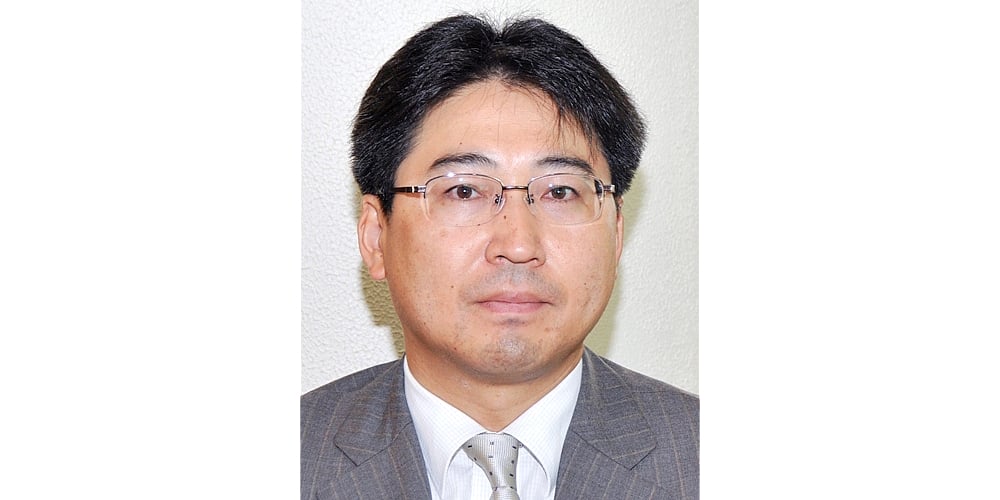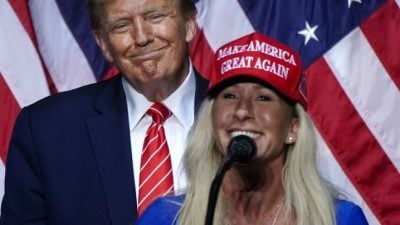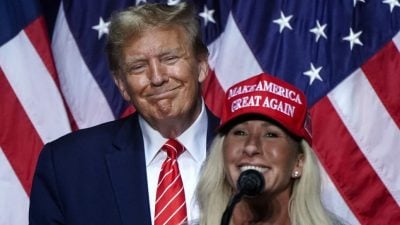
Professor Satoru Mori of Keio University in Japan points out that the Trump administration’s foreign policy philosophy can be broadly divided into two.
The first is what could be called conservative unilateralism, and President Trump and Vice President J. D. Vance are typical examples.
They prioritise America’s own interests and do not value the network of military and security alliances, economic multilateralism, and values such as democracy and freedom that underpin the liberal international order. Its own defence and its own trade surplus come first.
The second is what might be called conservative realism, and the core members of the foreign and security policy team, including Secretary of State Marco Rubio, would fit that description.
Although they are American-centric, they place importance on power, and believe that military involvement in the Middle East and Ukraine should be reduced and instead focused on China, and that China’s expansion of hegemony should be rejected with an emphasis on the Indo-Pacific.
They put some emphasis on cooperation with allies.
Economically, they also emphasise access to the Indo-Pacific, which is a growth sector.
The Trump administration tends to strongly promote policies that are common to both conservative unilateralism and conservative realism.
Ukraine and the Middle East are examples. The author is particularly concerned about the Global South. In particular, the former means that countries and regions that do not benefit the United States are not taken into account. Even in the latter case, if a policy contributes to the broader interests of the United States, it will be considered, but if not, it may not be considered.
Even though it was proposed by Elon Musk, it is likely that this is what is behind the Trump administration’s decision to cut off most of the foreign aid provided by the United States Agency for International Development (USAID).
There will likely be some negotiations between the administration and the judiciary regarding USAID in the future, but the drastic reduction in de facto aid from the United States, which is also a major donor country, will have a major impact on the countries of the Global South.
In addition, there are countries in the Pacific whose national existence will be at risk without American support in terms of military and maritime security.
This situation could be seen as an opportunity for China, but China has not immediately announced plans to increase aid.
However, there are so many projects that have been carried out on the basis of US assistance that there are many countries and regions that are in dire need of assistance.
However, there is no evidence from reports that developed countries have fully discussed how to fill the “vacuum” created by USAID’s withdrawal. For example, in the Pacific countries, Japan, Australia, New Zealand, and others may be able to coordinate, and in Africa, Europe and India may be able to fill the “vacuum.”
Developed countries, or BRICS should form an agreement to fill the “gap” in aid and adjust the burden.
In some cases, developed countries other than the United States may cooperate with China.
However, nearly two months after USAID’s activities were brought to a virtual standstill, developed countries such as Japan, and also China did not immediately take active steps to fill the void.
For example, in Japan, in response to rising domestic prices, the priority has been to stabilise people’s lives, and the ODA budget for fiscal year 2025 has been set at a restrained level; in response to the current situation in the United States, it will be difficult for Japan to rapidly increase its ODA budget in a short period of time.
European countries also have the Ukraine problem, so filling the aid “vacuum” is not a high priority.
The same is true for China. China’s own pure aid budget is not necessarily outstanding in the world.
When private investment is included, it is high, but the countries and regions in the Global South that need aid the most often do not overlap with the targets of private investment, so government aid is needed.
However, the Chinese economy is facing major problems, and the civilian sector, including social security, requires a large budget, and military spending is also expected to increase by more than 7 per cent. Therefore, it will be difficult for China to be as “generous” as it was in the late 2010s.
It cannot be said that President Trump is the personal cause of the United States adopting the America First policy.
Given the possibility that the United States will be reluctant to provide foreign aid for a long time to come, it can be said that developed countries other than the United States, or BRICS, should also form an agreement to fill the “gap” in aid and adjust the burden.
If this is not done, the problem will only get worse.
(Shin Kawashima is Professor at the University of Tokyo, Japan.)
ADVERTISEMENT
ADVERTISEMENT








































